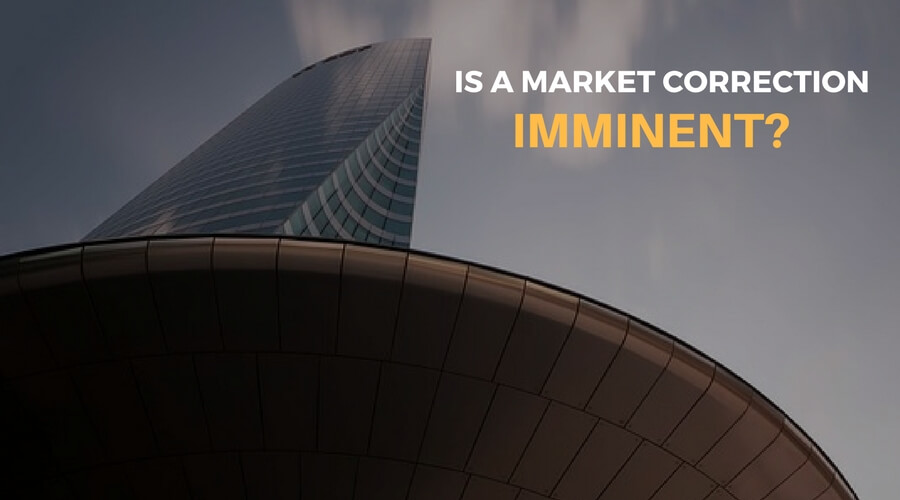It looks like the boom days have changed. In the recent Napic 4th qtr 2016 report, the real estate data indicates that things may no longer rosy as some want us to believe. Napic report indicates that it will take a few years for the overhand to clear. While you may not be able to know crystals clear the future 100%, there are numerous ways we can analyze the past and make some educated assumptions as to the future of the real estate market. There are leading indicators that drive the real estate market up and down as shown in the 18-year real estate clock (Check out more via this link).

Let’s Learn From the Last Market Crash
Fortunately, many real estate investors and homeowners have been buying smarter. They are less leveraged, they have affordable payments, and they have great financial cushions. However, this is certainly not true of everyone. Others have been tempted with greed and easy credit offers despite the cooling measures that were implemented from 2012. Some have either forgotten the lessons of the last correction — or have been oblivious to them. As Billionaire businessman and celebrity “shark” Mark Cuban famously said, “Everyone is a genius in a bull market.” That said, this game of musical chairs will soon come to an end, the music will stop, and many people will be left without a chair.
While this can be a good market to be a part of, during this period of growing prosperity, a major problem is brewing: speculators are entering the picture. Speculators are investors who heavily rely on future growth of the real estate market to generate profits and base their numbers upon this need. In other words, they begin to pay more for properties than they should because they can. And this leads us to the next phase.
Where Are We Headed?
As they say, the only thing certain in life is death and taxes.
The real estate cycle, while dependable, is not counted among the certain. However, general trends and estimates can be made because of the nature of the beast. The real estate market does operate on a boom and bust cycle, fed by supply and demand, though it is the timing that is difficult to predict with certainty. Outside influences, like wars, and who is in power externally can make a large difference on when the market will peak and when it will hit rock bottom.
That said, some have found patterns even in the timing of the market. Many people subscribe to the “18-year real estate cycle” theory, first outlined by economist Homer Hoyt in the 1930s and later re-popularized by many economists such as Fred Harrison, Phil Anderson and many others. The 18-year real estate cycle looks at the previous 200+ years in American housing prices and, except for a long winter caused by World War II, has found that the market has generally operated on an average of an 18-year cycle from peak to peak, seeing a peak in 1989 and again in 2007 in US.
The important thing about the 18-year cycle is to understand why it has worked not, necessarily the perfect timeframe. There are major indicators that show a change in the real estate phase is about to occur, and smart investors look to those indicators to guide their investments. They recognize when greed is driving prices greater than the math is. They understand when fear, rather than educated decisions, is driving prices down. They look for opportunities when others are ducking for cover.
This can be an exciting time for real estate investors, but one that must be carefully examined. Savvy investors are looking for “the bottom,” where great deals can be found. Once the market hits bottom period, this is the best time for a real estate investor to jump in and get some fantastic deals and help save the plunging economy.
Finally, understand that wealth can be built in any market if you focus on the essentials and avoid getting caught up in the hype. This is why learning the analysis side of investing is important. When the market is getting hot, make hay while the sun is shining! When the market overheat, stay away. No one can predict the real estate market with 100% accuracy. However, if you can learn to recognize the market and make choices that ride through any market, you can both build and hang on to some terrific wealth.

Structure Your Portfolio for Sustainability
It makes me shiver thinking of how tragic this could be for those who have invested poorly. This is especially true for those homeowners who have taken out high LTV loans and investors who have bought several units at a go when the DIBS scheme was implemented with flipping in mind upon completion of the units and balloon mortgages etc.
On the other hand, some investors have proven that they cannot only survive tighter times, but that they can consistently thrive in them. They’ve accomplished this by acquiring smarter long-term rentals, consistently investing in good properties at the right price, and ensuring the numbers will still work in all market phases. This can mean not buying and betting on appreciation alone or anticipating short flip times in an attempt to beat the market. If you do this, real estate is still the best investment in town. It is reliable and can deliver great returns. After all, we’ll always need housing, and if consumers are not buying, they are renting.
When Does a Recovery or Boom Turn Into a Flop?
Looking back at the lessons of the past, it has been oversupply, speculative buying, lack of affordability, and lack of sustainable investment that have really deflated the market.
The building projects that seemed so promising just a few years earlier are unable to sell, driving prices down quickly. Foreclosures rises as more and more owners find themselves underwater and more and more investors will find they are unable to pay the mortgage with the decreasing rents and increased vacancy. Combine this with an economic uncertainty you’ll find many homeowners out of work, unable to pay their mortgage on their home that they paid far too much for in the first place.
Choosing Sustainable Investments
Still, to win and to ensure your financial needs are provided for in the short and long term, investors need to be smart when buying. Warren Buffett would say never to buy based on speculative values anyway, but to buy based on production. If a property can continue to throw off positive cash flow, then it really doesn’t matter what others speculate it is worth this year or next.
Some are looking for investments that are cash cows, but also that are least likely to see the major price fluctuations of properties. They are looking for sustainable investments that will remain profitable and retain the most flexibility.
But it would be irresponsible to wildly claim that there are no clouds on the horizon, when the cranes are casting very visible shadows on the market. We hope many will enjoy the much needed benefits of investing in real estate but avoid the pain many are still recovering from by investing diligently and wisely today.

To learn more of the 18-year property cycle in Malaysia check out this book via http://www.propertymillionairessecretclock.com/
Happy Investing!










